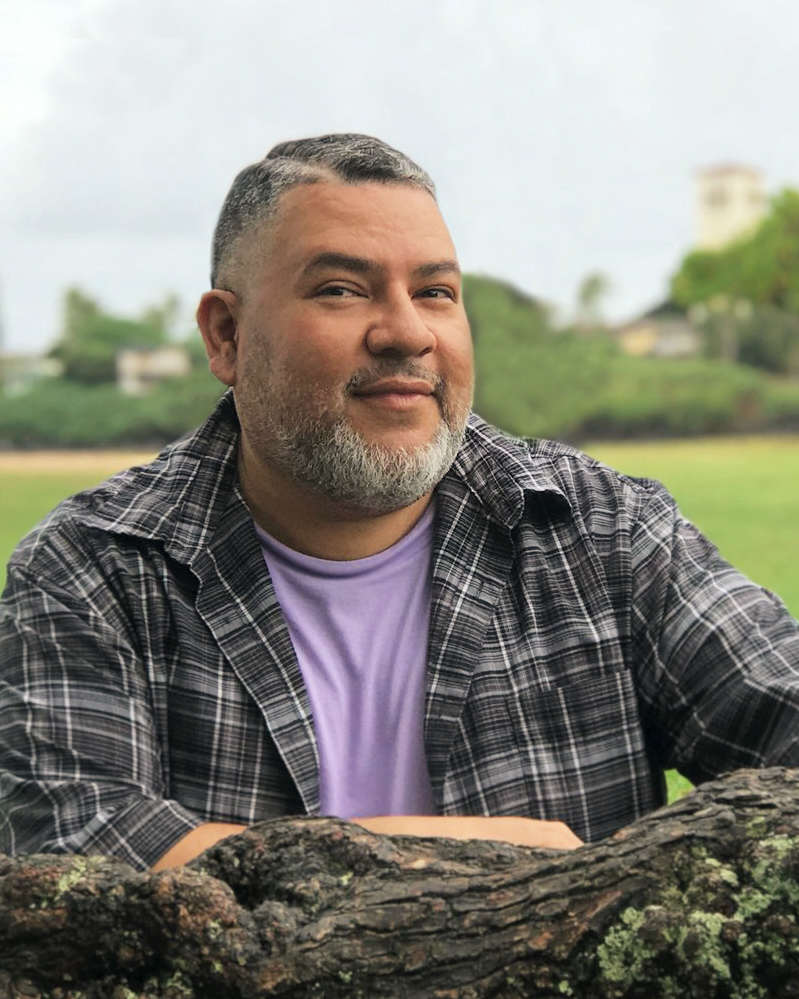By MIGUEL M. MORALES
with Deb Morales, MyLinda Morales Hutchings, Grace Morales
I grew up in a farmworking family.
No, that’s not accurate—it’s incomplete.
I grew up in a family of farmworking women.
The hands of our sisters, tías, cousins, mothers,
and abuelas have worked the fields, worked to feed us,
worked to raise us, worked to protect and provide for us.
I love my mom but the truth is that my sisters raised me.
Farmwork would not survive without women,
nor would farmworker families.
I. Debi
I don’t think anyone in our family knows this, but I learned how to drive
while working in the fields. At dawn, Tía Lucia assigned us our rows to weed.
The youngest walked with two or three rows on each, older kids had more.
Reaching the end of the rows, we’d turn and work our way back.
By then, the truck sat about 20 feet from where we started. One day Lucia asked
if I knew how to drive. When I said no, she taught me to drive that short space.
Soon it was my responsibility and for a few moments I could get off my feet
and sit in the shade. Eventually, I drove us from field to field and off the farm’s
dirt roads to the main road on our way home. That’s how I learned to drive.
Before the farmer could irrigate his arid crops, we’d clear them of weeds.
He’d pump water directly from the Ogallala Aquifer underlying the high plains.
The clear plentiful water flowed through newly trenched irrigation ditches.
We’d fill containers with the delicious, and somehow ice-cold, water—
satiated as the crops we tended. Cloudy days usually brought rain which
excited us because we could take a break or quit working for the day.
Moments before it rained, we felt cool calming breezes rush across the fields.
A deep earthy fragrance, petrichor, preceded the rain that usually followed
a long dry spell. Like the water from the aquifer, it refreshed us.
II. MyLinda
Despite only having 30 minutes to eat, we had the best lonches.
Our morning thoughts centered on burritos with papas and beans,
or pork, or steak that Mom made before work early that morning.
Lonche was the best part of the day—outside of quitting time.
We’d elude the assiduous sun by resting in the shade of the truck
or a nearby cornfield. We couldn’t take our shoes off because our hot
pulsating feet would swell and we wouldn’t be able to get them back on.
We resisted the urge to drink too much water because we’d get sick.
Besides, I hated the embarrassment of having to relieve myself in the fields.
Lots of gossiping and storytelling happened in the vast open fields.
Birth stories, death stories, and everything in between. Family history.
I desperately wanted stories I could share, to be part of the group,
but even though I was young, I held secrets, so I just listened.
One summer, my cousin, who also worked the fields with us,
her dad finally got caught molesting young girls.
Her life unraveled and she repeatedly tried to commit suicide.
After witnessing the fallout in her life, I didn’t dare tell my story.
Even when Mom specifically asked if I was molested, I said no.
III. Grace
For me, it wasn’t the hard work or heat, it was the humiliation.
Riding in the back of the truck as we drove home at the end of the day,
I’d see friends I went to school with and I’d pull down my hat, slide down
as far as I could, and pray they didn’t see me. We worked a backbreaking
sixty-hour week earning only $60. Of that, Mom only gave me three.
Once I worked up the courage to say it wasn’t fair, we should get more.
She slapped me across the face with contempt in her eyes.
Then she grabbed the three dollars out of my hand, saying,
“Well now you get nothing.”
I wish I could say I’m over it, but an inventory of my life begs to differ.
Working the fields taught me to walk through the world with my head down.
I know other field workers who have found success. They’re confident and
stand up for themselves. They claim their accomplishments with gratitude.
Today, younger people ask questions. They’ve decided that they can no longer
live an invisible life, ashamed. They’ve learned that it all starts with story.
Story reminds us that we’re alike and that we’re more than our circumstances.
I’m learning story is essential in moving forward, in taking our seat at the table,
a table where, together, our farmworking hands helped harvest the feast.
Miguel M. Morales grew up in Texas working as a migrant and seasonal farmworker. Selected as a finalist for the 2023-2026 Poet Laureate of Kansas, he is a two-time Lambda Literary Fellow and an alum of VONA/Voices and of the Macondo Writers Workshops. Miguel’s work appears in the anthologies: Imaniman: Poets Writing in the Anzaldúan Borderlands, Primera Página: Poetry from the Latino Heartland, Cuentos del Centro: Stories from the Latino Heartland, From Macho to Mariposa: New Gay Latino Fiction, and The (Other) F Word: A Celebration of the Fat & Fierce. His work has been published in Duende Journal, Acentos Review, Green Mountains Review, Texas Poetry Review, Hawai’i Review, and World Literature Today, among other journals. Miguel is the co-editor of Pulse/Pulso: In Remembrance of Orlando and of Fat & Queer: An Anthology of Queer and Trans Bodies and Lives, which was named the 2021 Book of the Year by the American Association of Sexuality Educators, Counselors and Therapists. Miguel has earned several awards including the Society of Professional Journalists’ First Amendment Award. Follow Miguel as @TrustMiguel on Facebook, Twitter, and Instagram.




